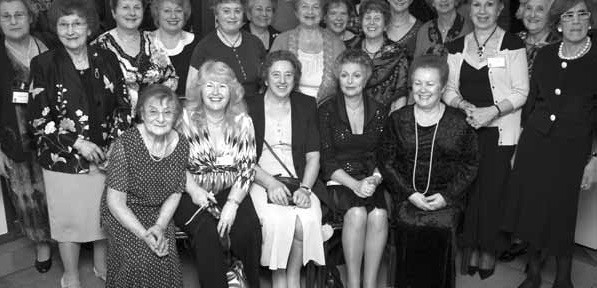
European Jewish Women Cross Borders
In March, Jewish women from across the Continent gathered in Brussels to explore how to build a more culturally inclusive Europe. Over 200 women attended the International Council of Jewish Women’s conference “European Women in Intercultural Dialogue: Perception and Reality.”
“This conference is so imperative because almost every country in Europe is struggling to deal with the challenges posed by an increasingly multi-cultural society,” said ICJW’s European Chairperson, Gillian Gold. This year marks the EU’s European Year of Intercultural Dialogue.
The goals of the conference were “to equip delegates with training, information and enthusiasm to promote intercultural projects in their own countries.” Liliane Seidman, conference organizer and Chair of ICJW in Belgium, told Lilith in an email that she hoped delegates “acquired the ability to set up new projects in their own countries alongside women from different cultures,” which is especially important now, “when countries are more and more a patchwork of different people with many different backgrounds.”
The conference reflects the attention that Jewish women already pay to these issues, facilitating dialogue and grassroots projects in many European countries. In Great Britain, a Women of Faith Coalition works with the Methodist, Roman Catholic, Bahai, Muslim and Jewish communities. And in Bosnia-Herzegovina, Rahela Dzidic, President of ICJW affiliate Jewish Women’s Organization of Bohoreto (Bosnia), spoke about her work on a project that includes textbooks and teacher-training to incorporate tolerance-building into the official school curriculum. Changing facts as well as attitudes, Dzidic’s group has also provided soup kitchens for Sarajevans, services for the elderly and support for women with breast cancer, all in cooperation with Muslim, Catholic and Eastern Orthodox women’s groups. Seidman emphasized that “women face special problems which are easily neglected unless attended to by women themselves.” She suggested that women are uniquely capable of helping because “we are more practical.”
Workshops at the Brussels conference encouraged participants to explore their own identity issues and their reactions to those who are “different.” The conference concluded with recommendations for future action. One crucial initiative that emerged from the delegates from Bosnia- Herzegovina is that the ICJW “must press countries to recognize and compensate women in their countries who are victims of rape as a war crime.” Rape victims, and often the children conceived from these rapes, suffer without government assistance, in contrast to males injured in fighting who are awarded pensions and medals.
Seidman stressed the importance of working and engaging in dialogue with diverse groups across Europe as “a necessity for the survival of Jewish people.”

